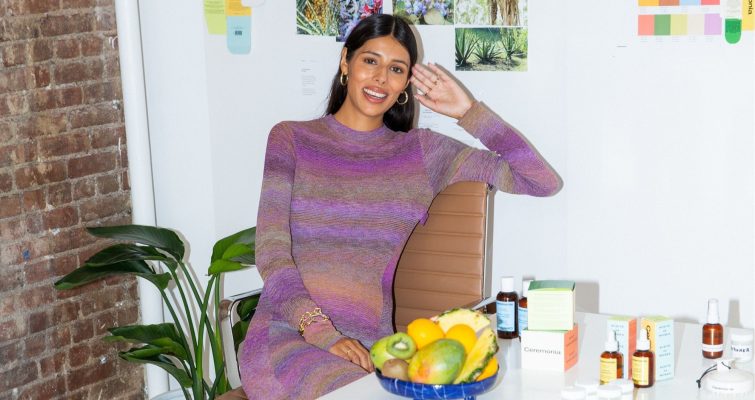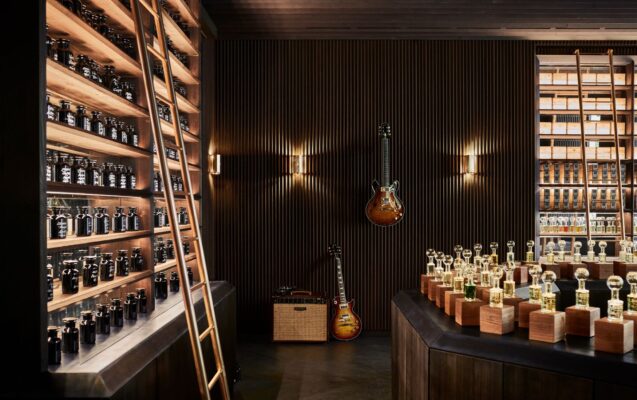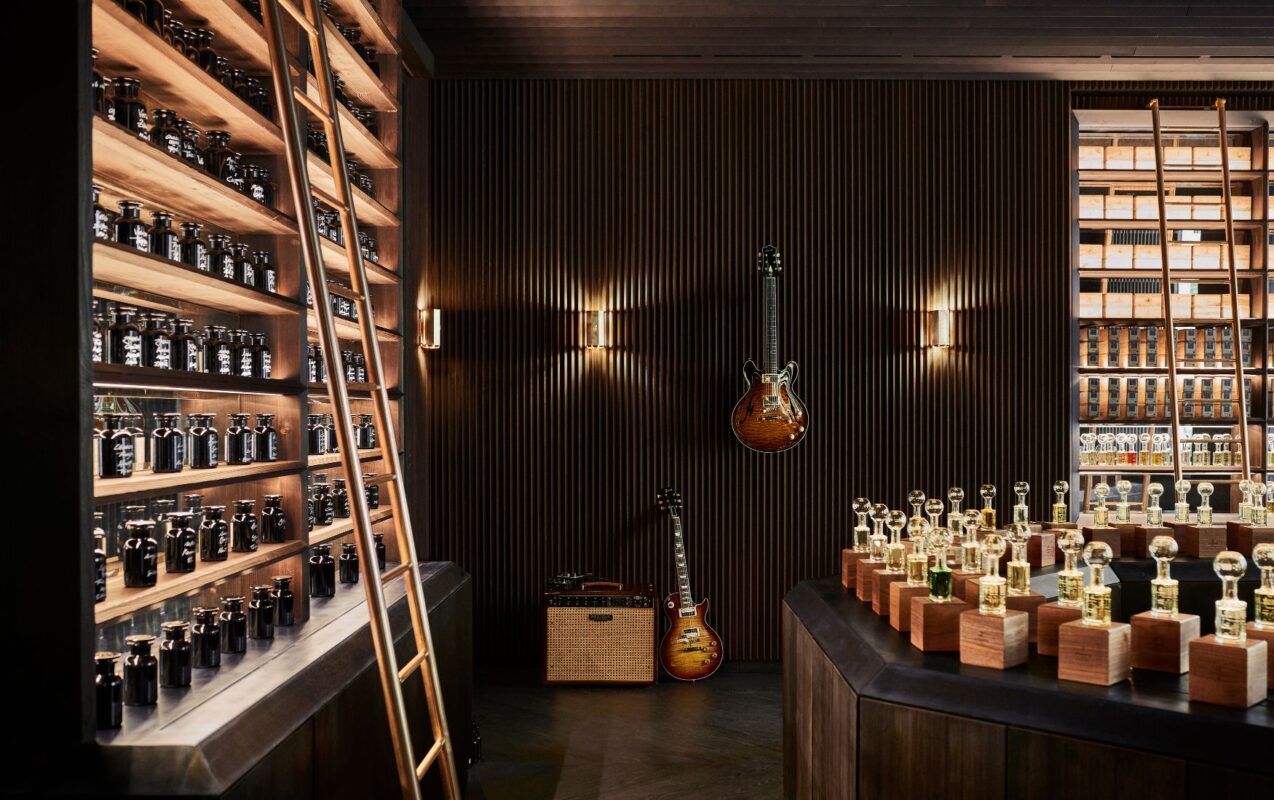
COFFEE WITH
JULIAN BEDEL: “IF LUCK FINDS YOU, IT BETTER CATCH YOU WORKING”
Name: Julian Bedel
Profession: Founder, Fueguia 1833
Nationality: Argentine
Zodiac sign: Pisces
Instagram: @julianbedel
LATINNESS: We’d like to start with the originality of your project’s name: Fueguia. Why did you choose it?
JULIAN: Fueguia was an Indian from Patagonia who was kidnapped at the beginning of the 19th century by Robert Fitzroy, an officer of the British Royal Navy. She was taken to these kinds of freak shows that the Victorian English did in Europe, where they presented captives from all over the world. After five years, they returned her.
On that second trip that Fitzroy made to Patagonia, he took Darwin, who was just a young botanist at the time. Fueguia met him there. The problem? When she returned to Patagonia, her family, friends and tribe did not recognize her, so she ended up completely abandoned and denied. It’s a very sad story.
The choice of name was due in part to an interest in showing the other side of what imperialism was. The whole botanical speech is very nice, but there were also social consequences. The idea was to pay tribute to these characters who suffered greatly with the arrival of Europeans, as was the case across America, from Canada to Tierra del Fuego.
With Fueguia we wanted to tell this part of history since it’s not well known and its name is very difficult to pronounce.
LATINNESS: However, one remembers it.
JULIAN: Yes, that’s the positive aspect about difficult things, you learn. If it’s very easy, then it’s not so memorable.


The Fueguia 1833 showroom in Buenos Aires.
LATINNESS: Speaking of your beginnings, Julian, we read that you entered this world by chance. Initially you were a brand consultant.
JULIAN: At the beginning I was a plastic artist, like my father and my brother. My thing was painting and sculpture. I also had a background as a luthier, but I worked mostly in art, in my studio. The brands and design part was what I did for a living, what fed me, while I developed my paintings and my things. I did a couple of projects for wineries and museums that asked me to create their visual and verbal identity. That was easy for me, so I didn’t spend a lot of work or time on it and they paid me well.
Then I went on to the development of perfumes, specifically, the creation of aromatic landscapes. I loved being able to extract them from plants, surround myself with aromas and smells that have meaning or medicinal herbs. However, I do not consider myself a perfumer. As much as I am the one who makes all the formulas, I think that perfumers have an education and a culture that is completely diverse. There is a culture of perfume and a tradition of perfume as such. I don’t feel like I’m part of it. In my case, it’s more about the tradition of nature and the plant scents… creating with that.
LATINNESS: How do you connect those aromatic landscapes with cities outside of Argentina where you have stores, such as Milan or New York, bearing in mind that in the beginning there was a direct relationship with your country?
JULIAN: It was by tradition. I lived there and I developed there. I was in Buenos Aires until the age of 35; I moved around Argentina, although I lived in the capital. Our collections have different concepts, actually: anthropology or characters, harmonies and destinies. There is a part inspired by geography and others in literature or music. There is also a collection called fable or fauna that evokes the animals of South America. Later, those connections allowed the incorporation of regions or cultures outside of our continent. It is the same approach in creation.
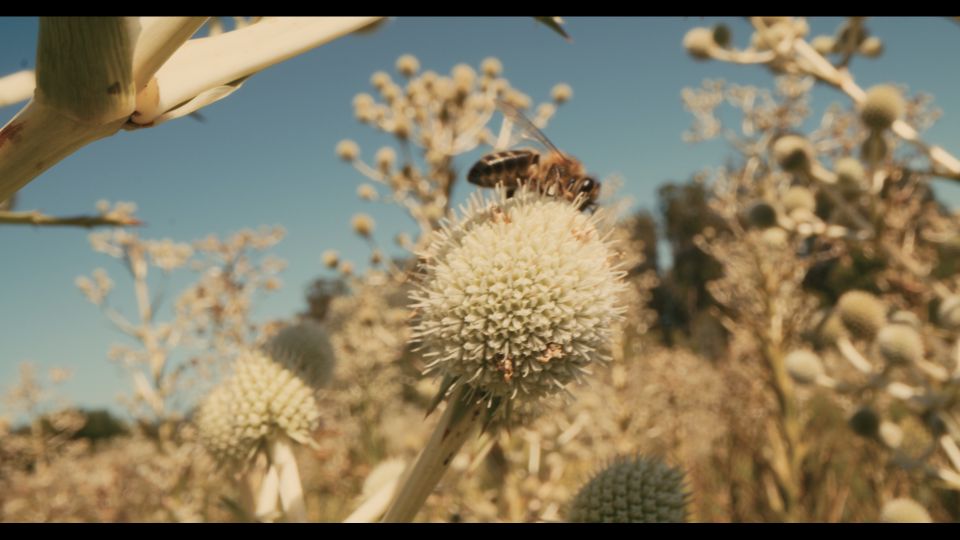
LATINNESS: They say that the sense of smell is deeply connected to memory. What do you want your clients to take with Fueguia 1833 fragrances?
JULIAN: Actually, the way I started aromas extracted from plants and combining them was born after reading the medicinal paper from the 2004 Nobel Prize, a work by Dr. Linda Buck. She was the first scientist to decode the olfactory bulb genome. In short, to understand how our nose works.
And in that paper, which is fascinating, short and very well written, she tells you how we are wired, and the importance of what triggers odor in our brain and then in our body. You don’t have to be a doctor to understand everything.
It is not only responsible for memories. Obviously, these have a visual imprint, and in our case, also an aromatic imprint, but the most important thing is that, when we smell something, our body creates hormones or kickstarts the secretion of hormones that changes the blood pulsation, blood pressure and the perception of time. There are many processes that occur simultaneously during the experience of smelling something.
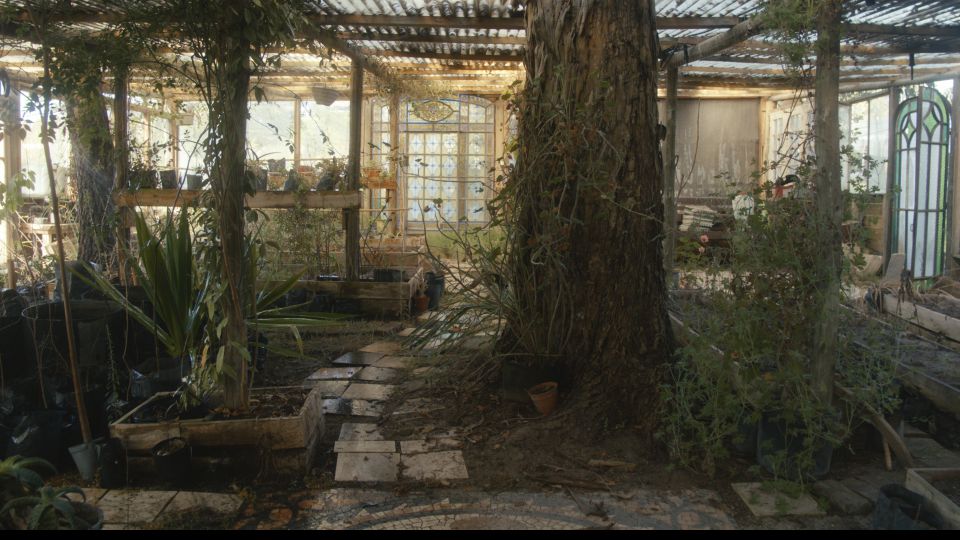
LATINNESS: Could you describe that process for us?
JULIAN: What is smell? In this action there is a physical part in which the nose absorbs the volatile molecules that exist in the things that surround us, and then the mucosa of our olfactory bulb is impregnated with them. What goes on here? Nature designs these groups of molecules with a certain degree of difficulty. In other words, there are odors that are extremely complex, which means they are composed of many molecules, such as coffee, tobacco, and vanilla. Then there are others more fragile and subtle, composed of fewer molecules, such as coniferous pines. Flowers are in between.
The interesting thing is that many of these volatile molecules have no odor, although they are responsible for creating the impact and transformation in our body. For example, when you are in nature, and suddenly, you feel you are in danger; then you realize there is an animal watching you and you might be a victim. Our body perceives the hormones of that animal that are volatile and sends us a warning signal. This means that the nose is a radar, a sensor that identifies opportunities and dangers.
It is thanks to the nose that one discovers what things we like to eat, what things are good for us and what are not. The problem is that much of what we consume is manufactured by man. They give it a really rich smell, but it’s not really good.
The incidence of volatile molecules in our body is also seen in something as primitive as reproduction, even among human beings. The man can catch the scent of a woman with whom he wants to reproduce, our pheromones, the chemical that both sexes secrete, although we are not so trained to identify it.
LATINNESS: And what role does memory play?
JULIAN: What you were saying about memory is very interesting. It actually comes connected to so many other aspects of our body where smell is key. It is a key player.


LATINNESS: When you think of Buenos Aires, for example, what memory does it evoke?
JULIAN: Cities are all very dirty, so I try to preserve the beautiful things: memories of parks or places or gastronomic situations in which the visual and the aromatic come together. There are cities that have a lot of humidity, like Buenos Aires, where the fetid smell hangs in the environment. In other words, cities, by definition, are not places where I usually keep an olfactory memory.
But in Argentina I lived near the zoo, where there was also a smell of sea lions and elephants. It also has a lot of green, it is very open, the air circulates, and I love it. From there, from its parks, I remember a selection of spectacular trees, jacarandas. For me, Buenos Aires is very about jacaranda trees, especially in summer or spring. In winter it is better not to be there.
LATINNESS: After you read the paper, what sense did you want to give to the brand?
JULIAN: As I come from art, the brand became my new palette so that I could express myself instead of with pigments or materials. This is even more powerful than a visual message. My fascination was there, for everything I could create with it. It was far more interesting than my abilities allowed.
As a painter, I was not doing very well, so the aromaticity offered a different palette. It gave me the opportunity to express myself in a more diverse way than painting or sculpture, because with those I had other types of limitations. The creative power of scent to bring an artistic message to life captivated me.
The good thing about art is that it doesn’t give you answers. One as an artist raises questions, leaves uncertainty. You do not have to answer; that depends on you, what it can generate within you. As an artist, developing upon a problem is great. To do so, it occurred to me to set up an installation that would be a perfumery.
So, the origin of Fueguia did not focus on a commercial brand of products, but on conceiving an artistic installation, in which people entered and raised some tops to discover a total of 15 perfumes. It was like an experiment. I named it Fueguia because it was the name I had in my head.
The place was simple. Surrounded by velvet walls with a central table and 15 perfumes. It did not involve great architecture, but the extractions and blends caught a lot of people’s attention, and they wanted to buy them. So I followed suit with this perfumery as an artistic invention. I never wanted a brand, or to be a perfumer. What I wanted was to have this tool, enjoy it and exploit it. I discuss smell, a very powerful smell, and with all the flora that exists in South America, even more so.
In Argentina there are a large number of plants. Extracting and combining them and exposing yourself to the complexities of that perfume, also turned out to be a very good business.


Milano, Italy.
LATINNESS: How wonderful. You’ve seen the potential of collaborations, and have created collaborations with Hauser and Wirth and Mos De, amongst others. What do you look for in these alliances?
JULIAN: We were talking to Hauser so that they would be gallery artists, because precisely, the installation project was also transferable to other instances, to other creations. And Hauser had a lot of interest in creating, in having an artist who used the olfactory medium. We ended up giving life to three perfumes, which were inspired by different places in the gallery, as if they were works. An article that they exhibit and that has a commercial intention, as is also the case with pictorial works, and we decided to give it the shape of a perfume.
The collaboration with Hauser starts from what would be a relationship between artist and gallery owner, and from a mutual attraction to do things together. And Yasiin, one of the founders of hip-hop and a client, was fascinated by perfumes. One day he told me that he wanted to meet me and I said: “You have to come to my laboratory in Milan, it will amuse you horrors!” After a couple of months, he visited us. He had the idea of producing a record with Negus’ name and wanted a perfume that would represent that work, a smell that would interpret it.
We also did one with the Jewish Museum in New York for Leonard Cohen, an interpretation of him and his work turned into a perfume. With Rolls Royce we collaborated on “distilling” the smell of their cars: that mixture of leather, wood and plastic.
These were very simple and not very commercial collaborations. We didn’t sell millions of bottles, but they were genuine.
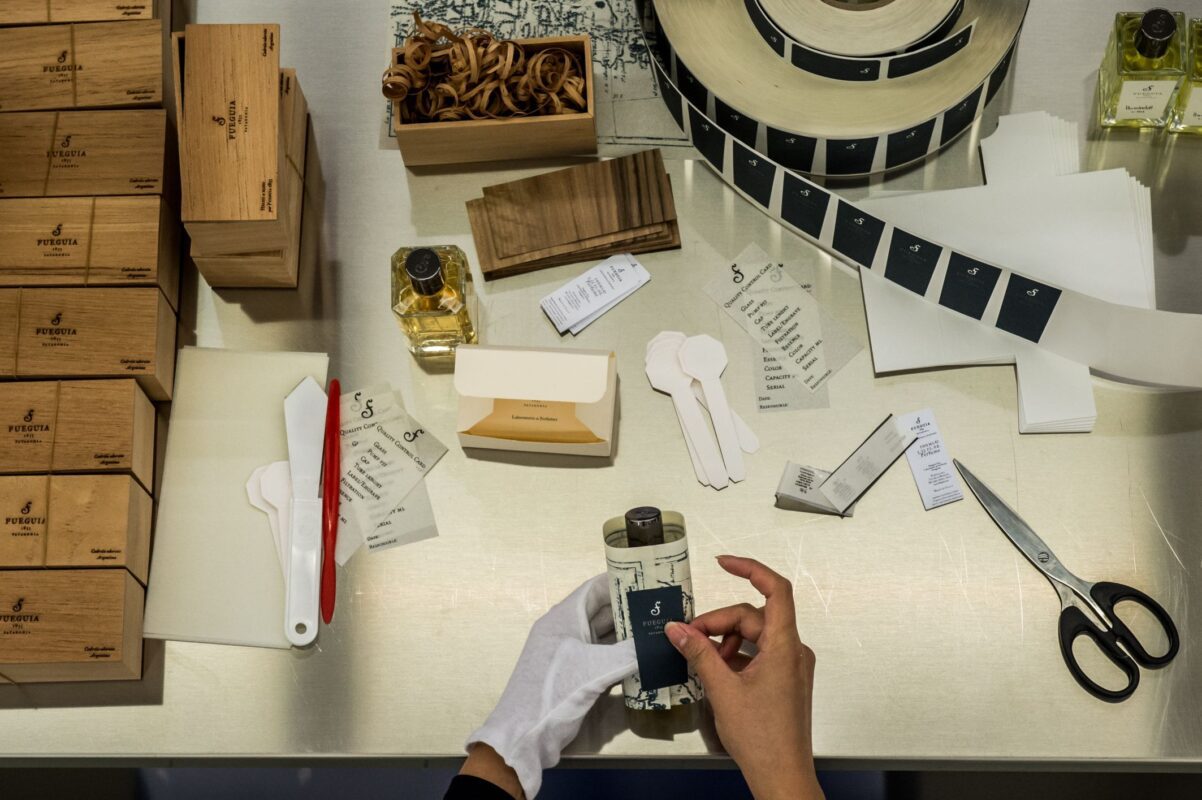
LATINNESS: We’ve worked in the industry for many years and know many creatives, like you, who have thousands of ideas, experiment with different mediums and are extremely talented. Sometimes, though, those experiments don’t always end in something so successful. To what do you attribute Fueguia’s success?
JULIAN: I wonder sometimes. I have a lot of friends, creatives, and artists; some are doing well, others not so much. I feel that constant work is decisive, as well as good luck. I’ve had a lot of good luck, but it’s always grabbed me working nonstop and believing in the project. It’s that divine combination of saying: “yes, this which I’m creating, this idea that I have, this concept whatever, I believe in it. Then, well, if luck finds you, it better catch you busy working.
On the other hand, a certain type of innocence also played a role, because it so happened that by building something that was credible for a person who came in and thought “it’s a perfumery”without knowing much about it, I ended up innovating in the retail area that was coming down the road. The approach for Fueguia was something new, different from the traditional experiences of people who like the perfume. It was not an extreme marketing strategy to promote a perfume brand.
In fact, we don’t consider ourselves a brand either. We are a company that creates perfumes, because we have everything vertically integrated: distillation, research, carpentry. The brand itself is the face of interaction, but it goes beyond… it is in everything behind it.
Also, there is something on the premises. I will tell you that more than 50% of the people who enter have no idea what Fueguia 1833 is; many enter because they find the place attractive. And when they notice the perfumes, they start to smell and they are fascinated. It is that aspect of surprise that draws your attention: the illuminated bottles that allow you to connect with natural smells, that remit something.
Everything that represents the brand, the company, Patagonia and others are secondary aspects that come after smelling something that later fascinated you.
LATINNESS: It’s a bit of everything!
JULIAN: There are people who come in already knowing Fueguia and are expecting something. It’s a bit of everything, but it has to be well equalized. If the EQ is bad, it’s going to sound bad.
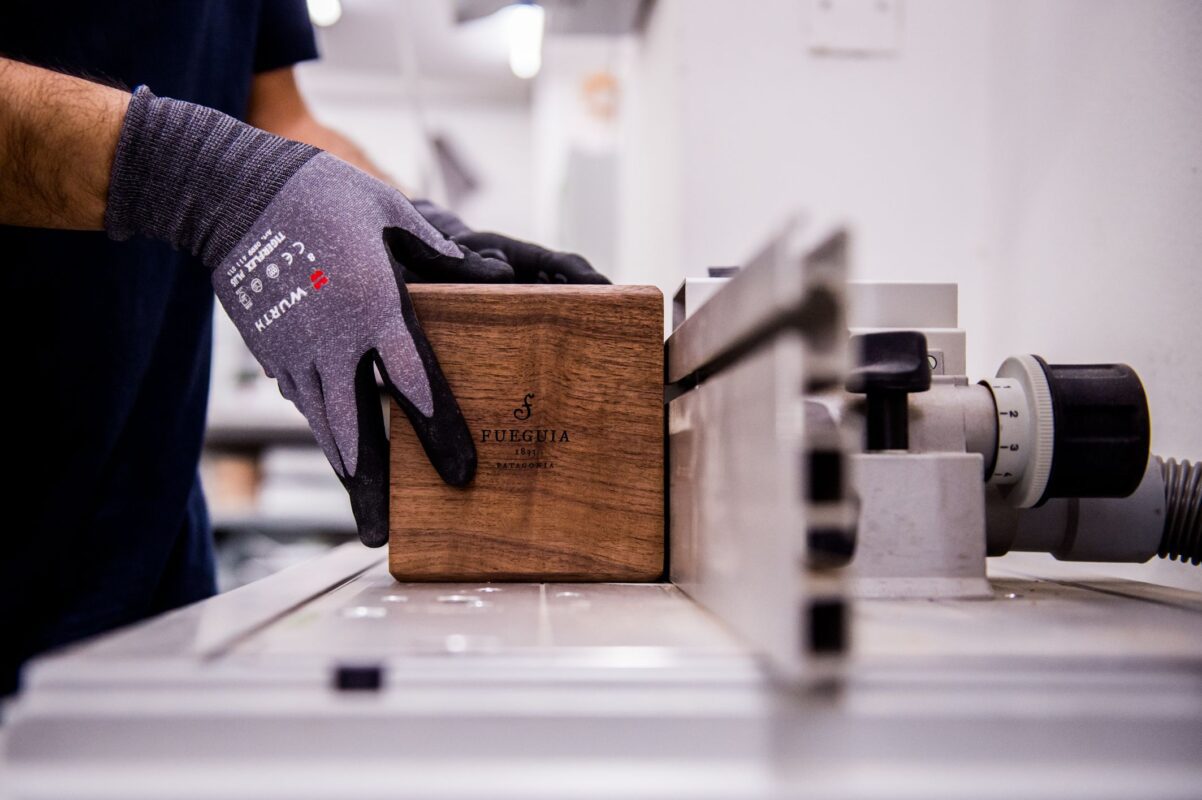
LATINNESS: Any future projects? What can we expect from you?
JULIAN: Many. Now some new machines are arriving. We have new extraction equipment that is called supercritical. It’s a high tech technology for the pharmaceutical industry that allows the extraction of molecules from plants. We’ve already used it. Now we are going to do the production in house. This enables us to extract new facets from a plant, different from those we already knew with traditional extractions. So the smell of the rose is more complete, it has more layers, more depth, more notes. We are creating new lines with this.
Also our line of incenses, because by having carpentry and using spectacular woods, we can use the powder that is released to make our incenses, which is a product that I like more than candles. I love the smoke and the act of burning something and transforming a space with the scented cloud.
In addition, we have new locations: in Dubai, Qatar, and Osaka; in London we are looking for a location. Lots of pop-ups in the summer or winter. If I’m not mistaken, in Mexico we will be at Palacio del Hierro. We are doing something with them in which they reveal a small part of the collection, about ten or fifteen perfumes, but enough to begin to tell our history. Mexico is very federal. You have to be all over the country, in Monterrey, in Guadalajara, in the DF, on the outskirts of the DF. There are many interesting places.
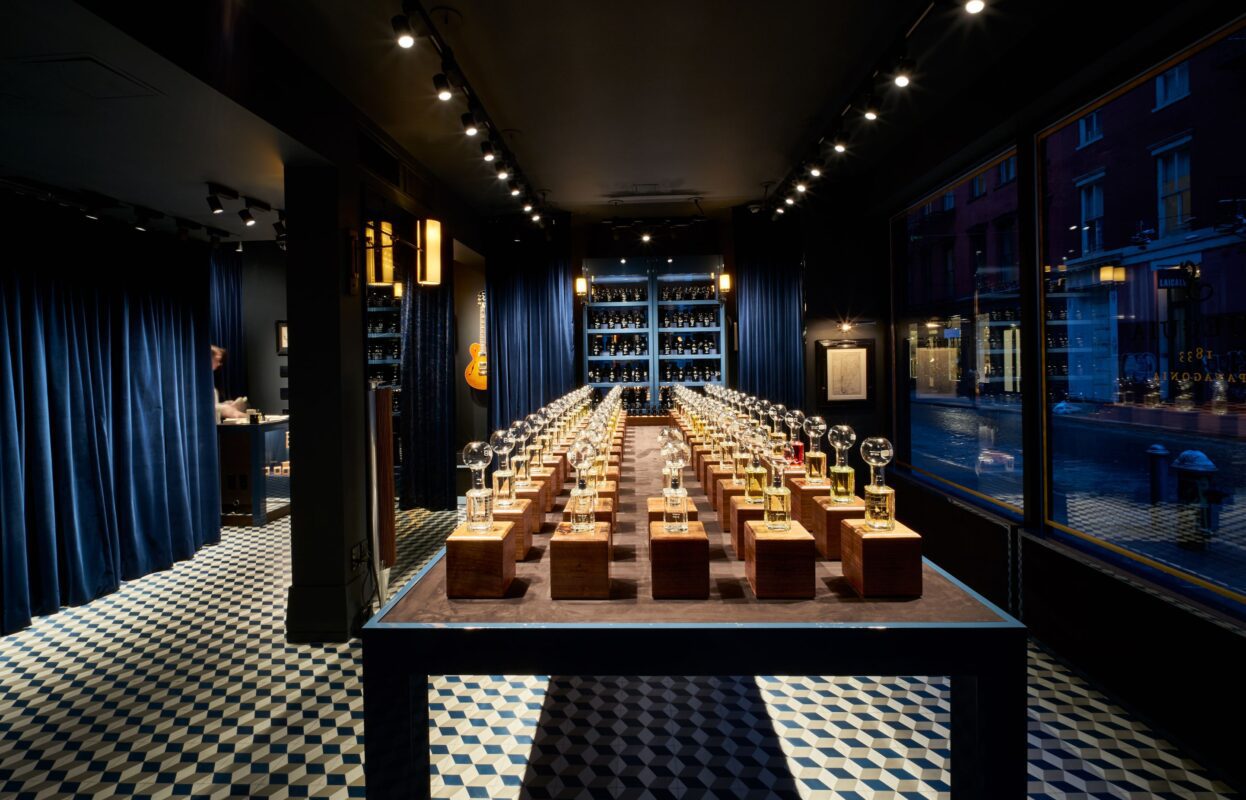
LATINNESS: I lived in Mexico for almost six years and it’s a wonderful country, you never stop discovering. Now, we always ask our interviewees what they love the most about Latin culture.
JULIAN: From my Latin culture, I love many things, because I don’t consider myself a typical Latino. I am not the archetype of Latin, but living in another continent, you appreciate things that you took for granted within what is Latin, which we have for example in Uruguay and Argentina, but also in Brazil, which I like a lot. My sister lives in Mexico and I’ve traveled a lot there.
There is a characteristic softness, gentleness that I think does not exist in Europe, which is diverse and applies to everything, including family and friends. The Latino is a very familiar person. We dedicate time to be with friends, to enjoy them, and in other cultures that is more difficult or it becomes more sporadic or it is shorter times.
Maybe it’s about the weather. Actually the Latin thing is taking the time to be able to do anything with friends or family. Say “I’ll take it this afternoon”, “I’m going here on the weekend” or “if I have to stay one more hour, I’m present.” That is not very common.
LATINNESS: To enjoy life.
JULIAN: I think so. That is our great teaching.


